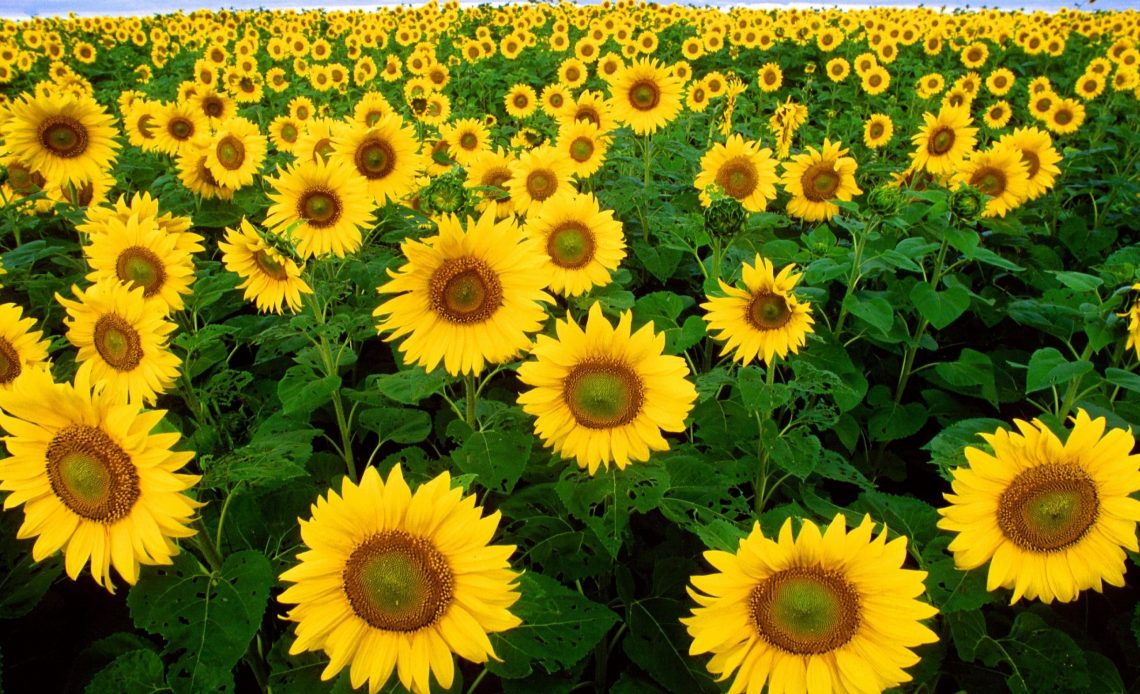

We’re here to help! Wild Yards is a completely free website that is 100% dedicated to helping you create a wildlife-friendly, sustainable yard. Read more
WildYards is reader-supported. When you buy a product through a link on our site, we may earn a comission. Every product is independently selected by our (obsessive) editors and our reviews are unbiased and objective. Read more about our mission or our privacy policy.
Sunflower seeds are tasty and bursting with nutritional benefits – and they also do very well for keeping wild birds fed and even attracting them to our gardens. However, you may find it’s not just your feathered friends who enjoy vacuuming up the seeds in your yard! For example, do deer eat sunflower seeds?
Deer love sunflower seeds. They will often eat at bird feeders and rummage through sunflowers in our gardens. However, they may not be the safest choice for deer snacks thanks to their high carbohydrate levels and shell toxicity.
Why do deer eat sunflower seeds?
Deer eat sunflower seeds because they’re easy to snack on, and are full of what they need. However, they can prove toxic if eaten in large quantities.
Sunflower seeds contain essential oils and fats that help us feel full – and they are particularly appealing for deer looking for quick energy, as they can help keep them satiated when wild food sources are low.
They are also high in fiber, vitamin E, and biotin – crucially, sunflower seeds are much like most of the deer’s favorite nuts in that they are ‘superfoods’.
Deer also prefer sunflower seeds because they are easy to eat and are fairly mild on the tongue. It’s a key reason why deer love celery, for example – anything too spicy or even slightly flavorsome is likely to deter them.
Sunflower seeds are rarely hard and easy for the deer to chew through to get to the ‘good parts’.
Are sunflower seeds good for deer to eat?
Sunflower seeds get a mixed reaction anecdotally and scientifically – they may be healthy enough as a very occasional snack, but they do pose some potential hazards.
This is primarily a result of their high carbohydrate levels, which can result in blocking up deer stomachs. In winter, this is particularly dangerous, as their digestive routines change from season to season. Believe it or not, deer digestion is surprisingly complex – and sensitive!
Deer are ruminants, which means that they depend on roughage and high fiber foodstuffs for most of the year. However, their microbe levels can change across the seasons, meaning they may not be able to break down sunflower seeds properly in the colder months.
While sunflower seeds could attract deer to your garden, it’s best not to interfere with these tempting snacks. It is prudent to avoid feeding deer during winter out of the risk of upsetting their digestive routines.
In addition to this, sunflower hulls – while easy to munch through – are toxic when eaten in large numbers. Therefore, leaving a feed plot out for deer that contains sunflower seeds may prove deadly. There are safer ways to welcome deer to your yard – growing an oak tree, letting weeds grow, and leaving out a few pieces of fruit, for example, are healthier routes to take.
Take note that supplemental feeding of deer is actually banned in multiple states, too. Refer to your local laws!
What kind of sunflower seeds do deer like?
Given a choice, deer tend to prefer black oil sunflower seeds – these varieties are easier for them to eat as their shells are relatively thin – and are reasonably balanced nutritionally.
As mentioned, it’s never a good idea to fill a feeding plot with sunflower seeds or encourage deer to eat around your sunflowers at all. It’s also a good reason to keep any sunflower seeds you have out for your birds out of deers’ reach.
How do I stop deer from eating my sunflower seeds?
If you regularly offer sunflower seeds to birds in your garden, a good place to start will be to simply position the bird feeder and/or table as high as possible. While deer can jump and will lean up to reach their food if they want to, placing your seeds far out of their eye line will prevent the risk of them getting tempted. What’s more, this will ensure your birds get exclusive access to their seeds.
The other thing you can do to protect your sunflower seeds is to provide deer with another kind of food. They will leave the bird feeders alone if other, more tempting food sources are available to them. However, if you plan on doing this, then ensure that you only put out snacks that are suitable for them, and again, never feed them in the winter.
Deer love watermelon, oranges, and are partial to acorns, which are great for them. Consider setting up a feeding plot towards the far edge of your garden with fruit and deer-friendly nuts, far away from your bird feeders.
You may also consider planting deer-resistant blooms such as ferns – they won’t deter deer visitors, but they’ll show very little interest unless they are starving.
Crucially, there are plenty of deer-friendly plants and nuts that your local ruminants are likely to love – and while they may be partial to sunflower seeds, they could pose major health risks to local deer.
